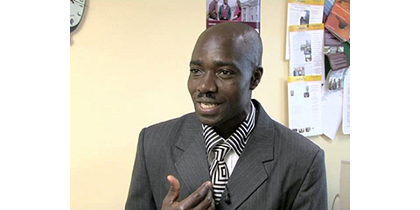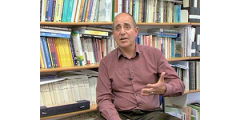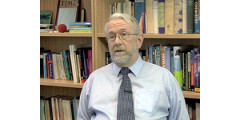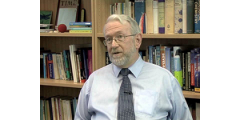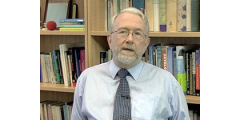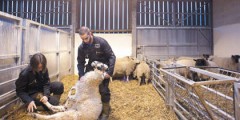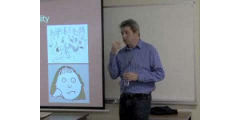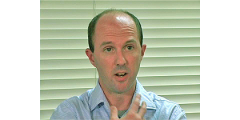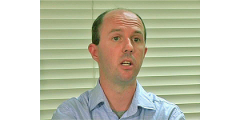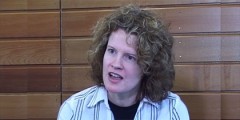International perspectives broaden a class debate
November 24, 2009
Video >> Interviewer: “What do you get out of a discussion?” Eric Masika: “I get different views of how to look at same thing. We’re looking at something same, but you have a different opinion about it, I have my opinion and we all pool together our experiences, it makes a new thing.” Chris Ennew: “The kind of …
Preparing groups to manage themselves
Video >> Martin Binks: “I have to spend a bit of time at the beginning of the first four lectures talking to the whole group, or rather in two large groups, and explaining to them why we’re doing what we’re doing, the way that we’re doing it, and what I’m hoping they will actually get …
Mixing international students and home students for small group study
Video >> David Clarke: “Talking to international students, the ones I’ve discussed this with, they are quite strongly of the view that they come to meet and mix with home students, students from other cultures, and that for a lot of them, I think, the idea that they, they seem to mix with their own …
Valuing the student voice: the tutorless tutorial
Video >> David Clarke: “I’m particularly mindful of the difficulty of getting everybody to participate in a way they’re comfortable with, and getting them to believe that we genuinely want to hear the student’s voice. I think the difficulty for so many students, and it’s not a peculiarity of international students, is they either don’t …
Tutorials: participation and creativity using nominal group technique
September 30, 2009
Video >> David Clarke, School of Psychology: “I’ve got several kind of set piece formats which I use. One of them is something that comes out of the literature on psychology and related disciplines, it’s called nominal group technique and it’s designed as a way of getting a group of people who don’t particularly know …
Perceptions of first year undergraduates of facilitated and non-facilitated small group learning environments
September 20, 2009
Kevin Gough, Karl Klisch, Rachael Tarlinton and Lisa Yon: “Student-centered learning is of growing importance within Higher Education and increasingly includes student-led as well as facilitated small group learning environments. The School of Veterinary Medicine and Science has adopted both of these approaches, with students undertaking facilitated clinical relevance (CR) and non-facilitated directed group learning …
Storytelling and role play in developing communication skills
April 14, 2008
Video >> Interviewer: “I know it’s something that you’ve been interested in for a number of years is the role of storytelling in teaching. Could I ask you to say a few words about that?” Paul: “Yeah, a few years ago now I wrote a book, with my wife Rhiannon, Storytelling in Therapy, which was …
Purposes of student-led seminars: development of transferable skills
June 26, 2007
Video >> Kate: “Hi Nick, thanks very much for coming over from the School of History.” Nick Thomas, History: “That’s OK.” Kate: “I wanted to ask you about seminars and seminar teaching. What is it you actually want your students to gain from participating in seminars?” Nick: “A number of different skills. We look to …
Setting up seminars for productive learning
Video >> Kate: “How to help students effectively prepare for seminars bearing in mind that there’s this wide set of skills which we want them to develop?” Nick Thomas, History: “I think it depends on the format, and I think it depends on how the seminars are done. Certainly the seminars that I run, there …
The good, the bad and the ugly: students’ experiences of group projects
January 17, 2006
Nicola Gray: “Background: Group projects have the potential to engage a large cohort of students in exercises that complement other aspects of the course. Effective use of resources is an important driver for course organisers. For pharmacy students, the importance of team-working in health care means that these exercises could provide skills to benefit their …

